The Rifat Chadirji Prize is a thematic open international prize focuses on proposing designs responding to local challenges in Iraq. This prize aims to introduce Iraq and its challenges to the world and invite them to submit their ideas and to establish an uncompromising open source of ideas tackling social issues in Iraq through design. The current situation in Mosul would overwhelm the capacity of the formal market to incorporate the masses of refugees arriving to the city. Direct imitations of Western models that were designed for another culture are creating an alien environment in Middle East communities. Another housing policy, that fits the distinctive situation is needed.
The idea of the First Place Winning project by Anna Otlik from Poland is to let the refugees settle by their own in a very traditional way, and designing the house space by the inhabitants according to the various needs of different families (size, faith, culture). The process as an informal settlement has a progressive character and uses the leftovers and recycled materials. Of course, the proper help of the municipality and charities is needed at the beginning, their main role would be to deliver the networks, building materials and arrange helping centers which later would change its function into the necessary city and public services. The scheme of the construction is to start the helping centre in a free land or densify free spaces inside the city centre. Then the refugees arrive and start to build, deciding by their own about the filling of the walls, occupied place and functions inside the house.
Judging Panel's comment:
The housing structure extend spontaneously in a sustainable, slow way and remains under constant evolution to provide a better future for the city of Mosul. It considers the situation at all the relevant scales and stages, from initial emergency housing to a full-fledged neighbourhood.
“Re-settlement” also presents the very balanced relationship between mass and voids, and voids which have different categories. The private voids that are private courtyards, and then the semi-public spines which lead to different dwellings or houses. Then there’s the public spine. there is a modesty to it that promises buildability, and yet at the same time it is attractive and will appeal to many different Mosulians, as a place to live. This proposal fits in very well with its context; it is not as though they are putting big tall buildings. It is a low rise dense building. It complements the fabric and the density of the city.
The housing structure extend spontaneously in a sustainable, slow way and remains under constant evolution to provide a better future for the city of Mosul. It considers the situation at all the relevant scales and stages, from initial emergency housing to a full-fledged neighbourhood.
“Re-settlement” also presents the very balanced relationship between mass and voids, and voids which have different categories. The private voids that are private courtyards, and then the semi-public spines which lead to different dwellings or houses. Then there’s the public spine. there is a modesty to it that promises buildability, and yet at the same time it is attractive and will appeal to many different Mosulians, as a place to live. This proposal fits in very well with its context; it is not as though they are putting big tall buildings. It is a low rise dense building. It complements the fabric and the density of the city.
The Rifat Chadirji Prize for Architecture
Rifat Chadirji Priza is an annual open-ideas architectural competition For students and professionals.Below is a Photo of Anna Otlik- First Place winner of the 2017 cycle at The Awards Ceremony receiving her trophy. Applications are now open for the 2018 Competition; please visit the Awards website for more information:
www.rifatchadirji.com
www.rifatchadirji.com

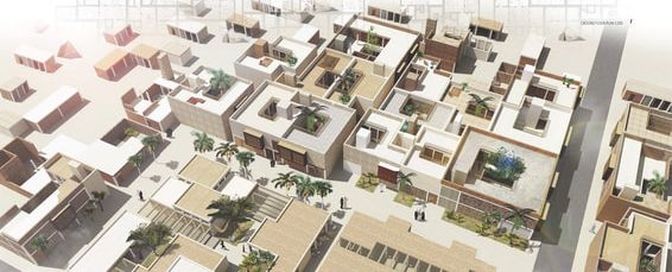
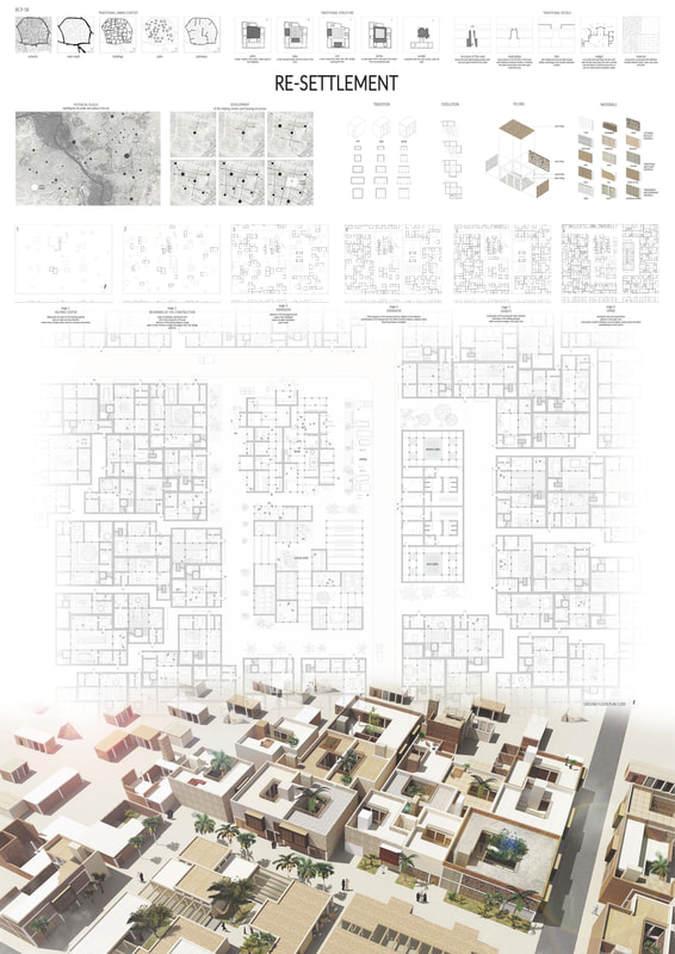
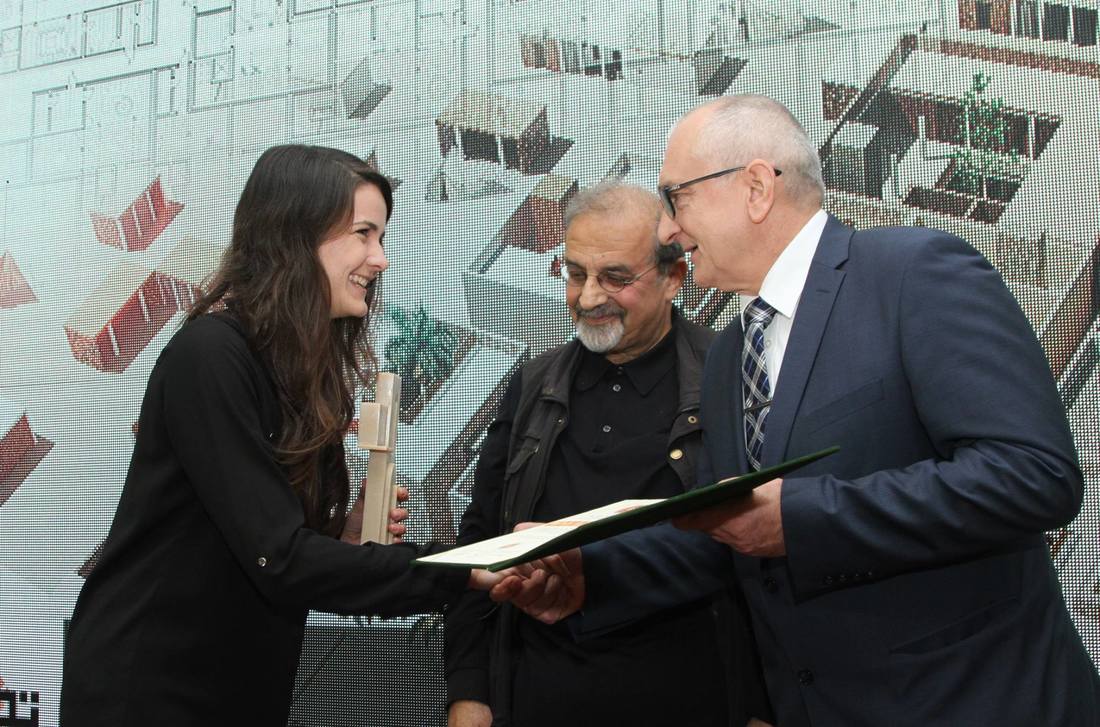
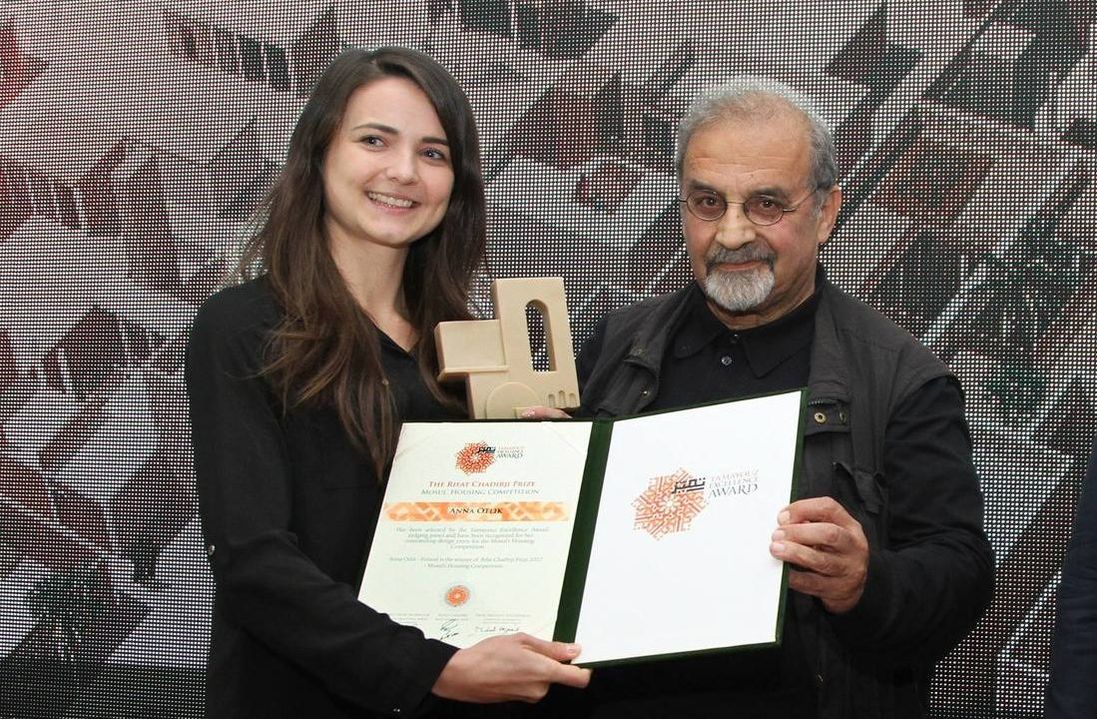
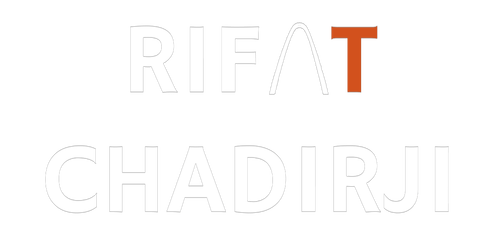
 RSS Feed
RSS Feed